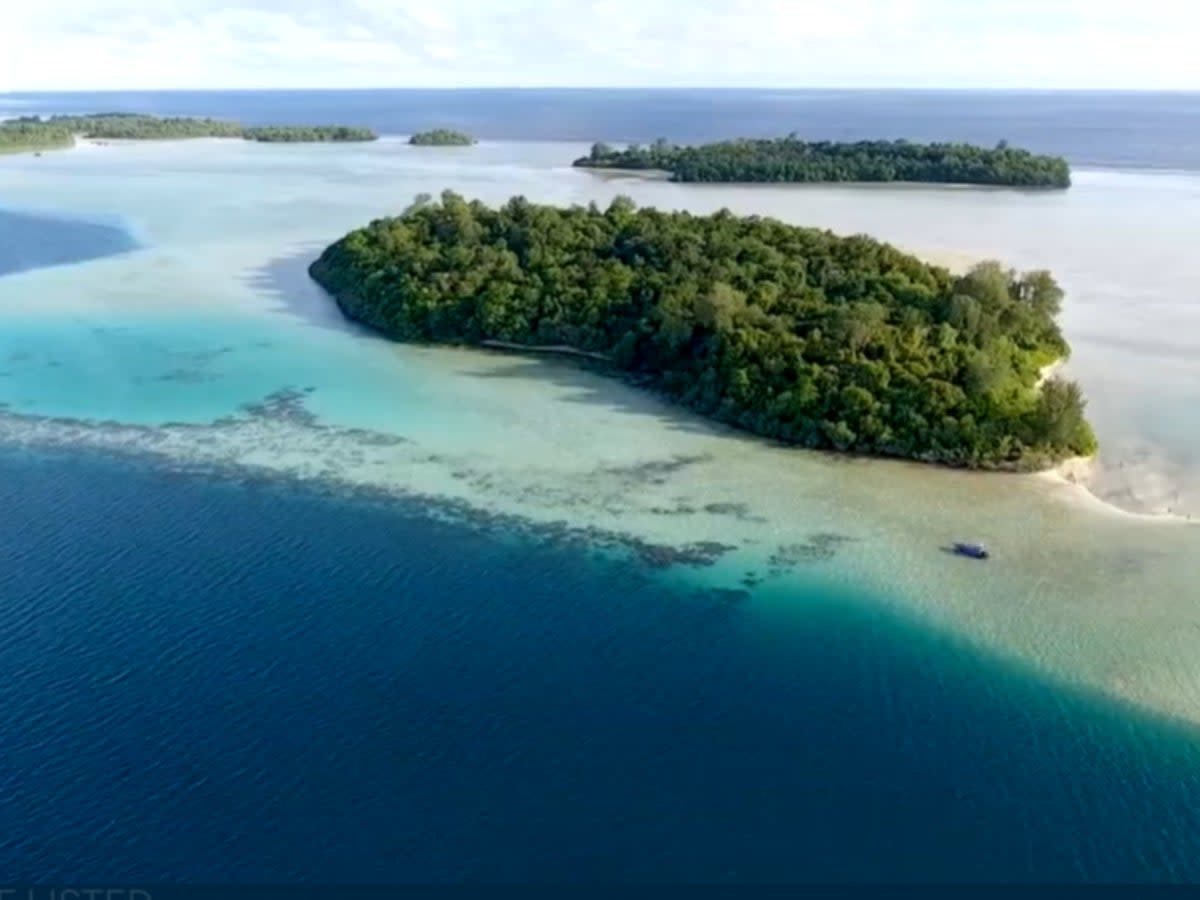Entire Indonesian archipelago with more than 100 tropical islands put up for auction

An Indonesian archipelago consisting of more than 100 islands is set to be auctioned by Sotheby’s next month.
The Sotheby’s online listing of the auction states that the Widi Reserve is “one of the most intact coral atoll ecosystems left on earth.” It is also home to hundreds of endangered and rare animals.
“Located in far East Indonesia in the heart of the Coral Triangle, the Widi Reserve is a coral atoll archipelago boasting 100-plus uninhabited, pristine tropical islands fringed by 150km of powder white sand beaches, thriving coral reefs, and private, deep-sea, nutrient-rich waters,” it said.
While the reserve is uninhabited with no permanent local population, it is visited occasionally by two small communities from the mainland villages and traveling fisherman, a spokesperson for Sotheby’s told Business Insider.
According to the Sotheby’s spokesperson, the Widi Reserve was established as a Marine Protected Area in 2020 and its rainforests were designated as highly protected areas.
The reserve is considered a national asset and investment company PT. Leadership Islands Indonesia (LII) currently holds exclusive development and management rights.
The listing states that the organisation spent several years obtaining the rights to redevlop the reserve into a luxury resort and residency.
“PT. Leadership Islands Indonesia (LII) has spent several years carefully master-planning, designing and licensing one of the most environmentally sensitive low density luxury resort and residency developments in the world,” said the listing.
While Indonesian law does not allow private ownership of islands, shares in a business with development rights can be sold.
“The opportunity to conserve and sustainably develop the Widi Reserve by acquiring interests in LII presents a once-in-a-generation opportunity,” said Sotheby’s.
Environmental experts have, however, raised concerns about the reserve’s redevelopment.
“Fishing spots for fishermen that have been used for generations will be limited,” Mohamad Abdi Suhufan, national coordinator at Destructive Fishing Watch Indonesia was quoted as saying to The Guardian.
“The social impact of this plan will offset the environmental benefits. Currently, the government is aggressively attracting foreign investment to obtain state revenue. No rules should be changed to pass this plan.”
“How can it be guaranteed that these islands will not be exploited for tourism activities?” questioned Indonesian environmentalist Iwan Sofiawan.
“And how about access for the local communities after the islands become privately owned?”
A Sotheby’s spokesperson said the reserve will include some “no-go areas” for tourists.
“The islands chosen for development were picked not just for their exquisite views and unique features but precisely because they could be developed without disturbing critical habitats.”


